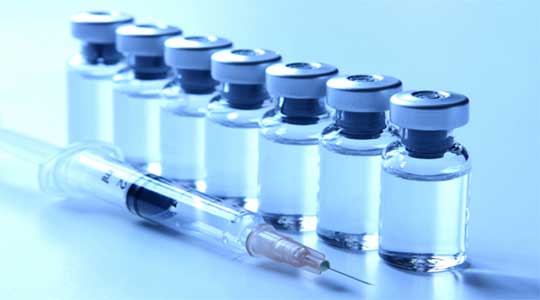Pfizer Vaccine Appears to Protect 94% of Adults over 65 Years Old

Pfizer’s and BioNTech’s coronavirus vaccine appears to protect 94% of adults over 65 years old.
More data released from their ongoing phase three trial suggests the vaccine works equally well in people of all ages, races and ethnicities.
The companies say they will now apply for authorization for emergency use of the jab in the US.
The findings are based on two doses given to more than 41,000 people around the world.
Last week, Pfizer and BioNTech published preliminary data showing the vaccine offered 90% protection against Covid-19 and there were no safety concerns.
This was followed by impressive data on another vaccine, made by US company Moderna, suggesting nearly 95% protection.
November 18 data from Pfizer and BioNTech, which builds on last week’s data, suggests the vaccine is 95% effective based on 170 cases Covid-19 developing in volunteers.
Just eight were in the group given the vaccine, suggesting it offers good protection. The rest of the cases were in the placebo group given a dummy jab.
Moderna Vaccine Shows Nearly 95% Protection Against Covid-19
Coronavirus: Pfizer Vaccine Offers 90% Protection
Scientists said the data was further encouraging news.
Although the full trial data has yet to be published, the companies say there have been no serious safety concerns.
However, they did notice headaches and fatigue in about 2% of volunteers given the vaccine, although older people seemed to experience minimal side effects.
There is also evidence that the vaccine protects against severe Covid – but this is based on only 10 cases.
It’s still unclear how long protection from the vaccine lasts and if it stops people transmitting the virus.
In the trial, 42% of all participants are from diverse ethnic backgrounds and 41% are aged between 56 and 85 years old.
The trial, which is testing people at 150 sites in the US, Germany, Turkey, South Africa, Brazil and Argentina, will collect data on the safety and efficacy of the vaccine for another two years.
Pfizer and BioNTech expect to produce up to 50 million doses of the vaccine this year and up to 1.3 billion doses by the end of 2021.
There are hundreds of vaccines in development around the world, and about a dozen in the final stages of testing, known as phase three.
The first two to show any results – made by Pfizer-BioNTech and Moderna – both use an experimental approach, called mRNA, which involves injecting part of the virus’s genetic code into the body to train the immune system.
Antibodies and T-cells are then made by the body to fight the coronavirus.
Russia’s Sputnik vaccine has also released early data from phase three based on a smaller number of volunteers and Covid cases.
There are some logistical challenges with mRNA vaccines, namely the need to store them at cold temperatures.
The Pfizer vaccine must be stored at around minus 80C, although it can be kept in a fridge for five days.
Moderna’s vaccine needs to be stored at minus 20C for up to six months and kept in a standard fridge for up to a month.
